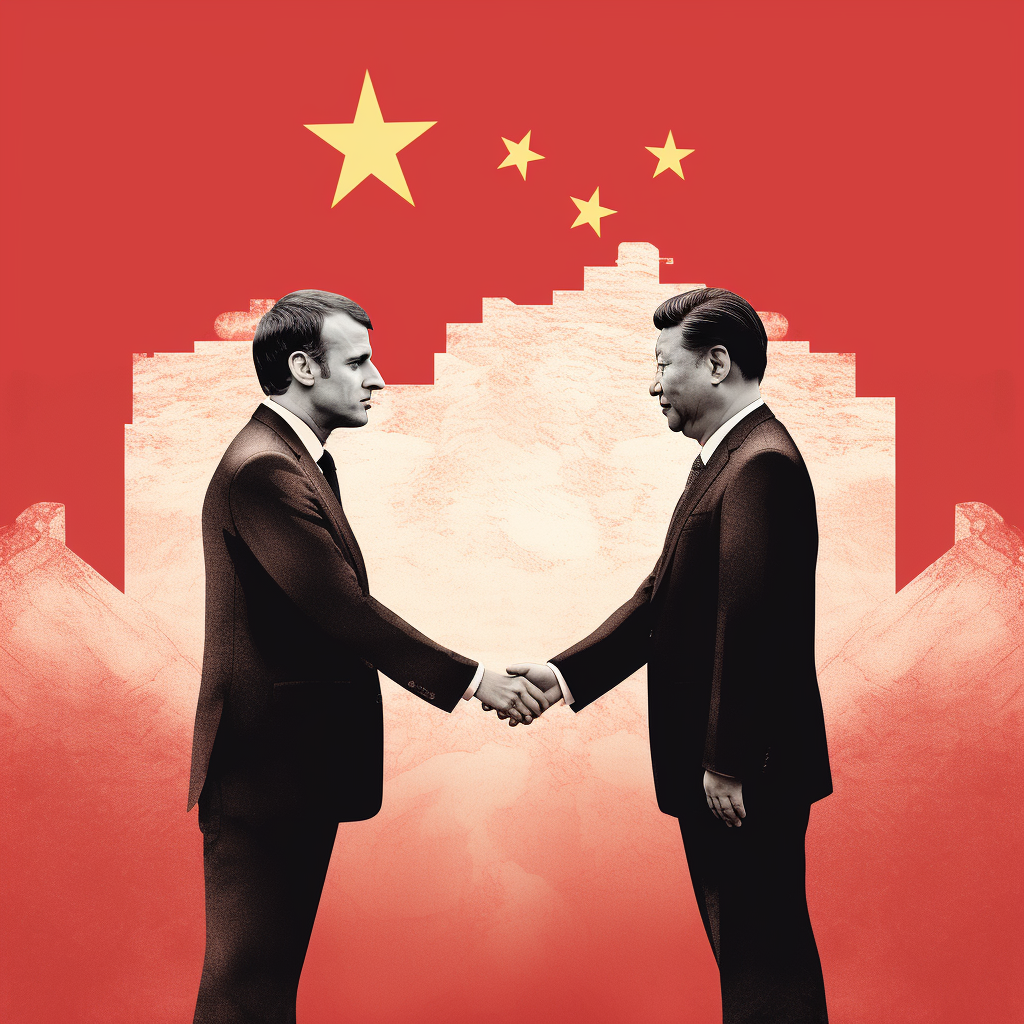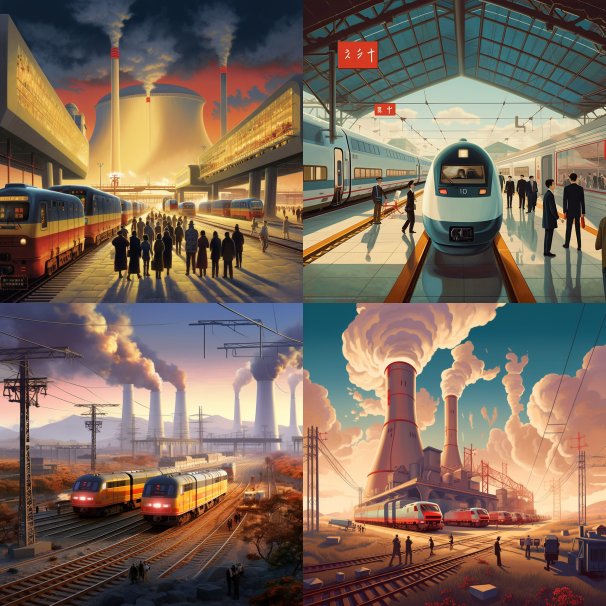
When French president Emanuel Macron visited Beijing in April to meet with China’s president, Xi Jinping, he came to discuss geopolitics and business. He rankled officials in the European Union and United States with certain comments, turning attention away from the business half of the trip, but within the business half geopolitics and nuclear energy played a small but notable role. A look at Macron’s comments and France’s business interests reveals that, from a French interest perspective, including nuclear interests, his faux pas may have actually been savoir faire.
It is easy to see how Macron upset Washington and Brussels. From warning against the risks that Europe “gets caught up in crises that are not ours, which prevents it from building its strategic autonomy” – strategic autonomy is a favorite Macron phrase – or that overcome with panic, we believe we are just America’s followers,” he seemingly undermined European support for Taiwan, suggested that the EU acts rashly, and implied that US-EU cooperation reflects weakness rather than strength. The fact that Macron’s comments came on the heels of Chinese military exercises around Taiwan and weeks after China released its 12-point peace plan for Ukraine gave emphasis, if any were needed, to the subtext of Macron’s statements.
When it came to business, on the other hand, the intentions of the trip were best summarized in Macron’s comment that “strategic autonomy doesn’t mean autarky.” In the kerfuffle over his political comments the entourage of over 50 business executives that accompanied him to meet with Chinese political and business leaders was nearly overlooked.
The CEOs of Alstom, Airbus, and Électricité de France, EDF, were among them, and hint at the business interests that Macron wants to grow. Alstom, a French rail manufacturer with nearly 40,000 employees, Airbus, a multinational European aerospace firm with over 125,000 workers (11% owned by the French government), and EDF, a French electric company with 165,000 employees (85% owned by France) specialize in the transportation and energy infrastructure that China’s national and local governments continue to deploy at frenetic pace. In air travel, China went from 266 million passengers and 175 airports to 660 million passengers in 2019 and 248 airports in 2019, with demand for passenger jets expected to grow now that China’s zero-Covid policy has ended. In rail, China went from zero miles of high-speed rail in 2007 to over 23,000 last year. In energy, China and the US consumed about the same amount of electricity in 2010, approximately 4 TWh. Since then US consumption remained flat while Chinese consumption more than doubled. Notably, China’s nuclear energy generation has more than quintupled since 2010, now behind only the US and France. China plans to spend up to half a trillion dollars through the 2030s to construct 150 reactors.
Despite the strength of China’s domestic infrastructure companies, the surfeit of Chinese infrastructure spending will spill over to foreign suppliers, hence France’s business community’s interest in Macron’s efforts to strengthen ties with China. While China may have a national plan for nuclear reactors, it is unclear what share of the construction, fuel, and maintenance costs will be borne by the national government versus local ones. French firms, including EDF and Framatome, may be counting on obtaining a cut of local infrastructure spending and its concomitant spigot of foreign-firm contracts. Guangdong province alone, with a bit less than a tenth of China’s population, plans to spend $148 billion on projects this year, part of $1.2 trillion in project commitments. Henan, a province of 100 million people, plans to spend $260 billion on infrastructure in 2023. While the amounts spent on energy endeavors vary, potential sales for foreign firms, including French ones, are large. For the French nuclear industry the prospects are even brighter, thanks to a new Chinese-French nuclear agreement.

During Macron’s visit to Beijing, France and China released a joint statement about cooperation on energy projects, including nuclear energy, but France and China have been cooperating on nuclear energy for decades. EDF is the parent company of Framatome, the French nuclear reactor construction, fuel management, and maintenance firm with 16,000 workers serving much of the global reactor market. Within China Framatome has 600 people spread across nine locations. China and EDF/Framatome have built and are building numerous reactors together, and China purchases hundreds of millions of euros worth of reactor equipment from France annually, an amount that is likely to grow as the Chinese reactor fleet swells. In reactor construction projects spearheaded by Rosatom, Russia’s nuclear titan, working with Framatome, each reactor project may generate over half a billion euros of revenue for EDF. Yet as China continues to expand the size and sophistication of its nuclear engineering and construction capacity, its reliance on foreign firms may diminish. Macron, EDF, and Framatome can be seen as positioning themselves to grab a diminishing share of a rapidly growing pie, hoping to edge out nuclear supplier competitors from countries that Xi Jinping may view as unfriendly, like America (Westinghouse), troubled, like Russia (Rosatom), or an American ally that China views as a threat to its interests, and where China is very unpopular, like Korea (Korea Hydro & Nuclear Power, part of Korea Electric Power Corporation).
However China-France nuclear energy sales and cooperation pan out, it is best to see Macron’s comments not as a rejection of obeisance to the America-centric rules-based system, but as a component of the strategic autonomy that he has championed. In this case it is partially European autonomy and partially French autonomy that he espouses, and in both cases fit with his quip, “Why should we go at the pace chosen by others?” China’s nuclear industry may well concur.
